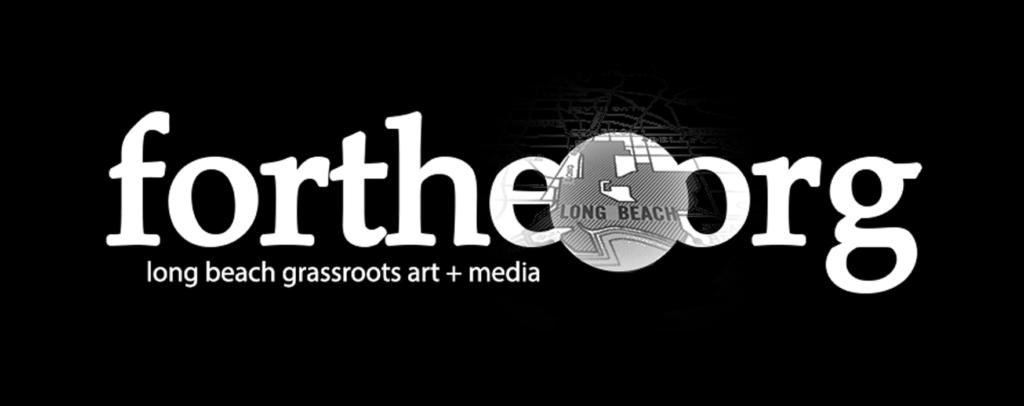A Documentary About Displacement in Long Beach
SYNOPSIS
Our Home Too is a series of documentary shorts that capture both the pain and resilience of Long Beach residents who were displaced or faced imminent displacement.
The five-part series takes place in the years leading up to the enactment of the California Tenant Protection Act in 2020.
During that time, Long Beach saw a dramatic rise in rents as gentrification gripped the city, making housing prices unaffordable for many of its long-standing residents. Without renter protections, tenants ranging from families to students to artists in low- and middle-income households alike were left to contemplate leaving a city they helped create, or worse, life on the streets.
This series tells the stories of those whose voices were drowned out by the mania and political puffery surrounding “revitalization,” refocusing the narrative on the people whose neighborhoods were decimated by the drive to create a city for somebody else. Despite gaining some protections this year, renters in the city continue to be vulnerable to a variety of housing issues, especially with the wave of job losses brought on by the coronavirus.
The series is a collaboration between Housing Long Beach, Long Beach Residents Empowered (LiBRE), and FORTHE Media through a generous grant from the Resources Legacy Fund.
Shot and edited by Sutton York. Directed and produced by Kevin Flores.
Episode 1: Jackie
Episode 2: Keayva
Episode 3: Cedar Building
Episode 4: Stacy and Sharon
Episode 5: Organizer
Long Beach Housing Resources:
BASTA Long Beach
Legal Services
Address: 333 West Broadway, Suite 204, Long Beach 90802
Phone: 562-590-7300
Email: info@basta.org
Website: www.basta.org
Housing Long Beach
Advocacy and Renter Assistance Organization
Address: 525 East 7th St., Long Beach, CA 90813
Phone: 562-436-8592
Website: www.housinglb.org
Legal Aid Foundation of Los Angeles – Long Beach Office
Legal Services
Address: 601 Pacific Avenue, Long Beach, CA 90802
Phone: 800-399-4529
Website: www.lawhelpca.org/org/legal-aid-foundation-los-angeles-long-beach-office
Long Beach Residents Empowered (LiBRE)
Advocacy and Renter Assistance Organization
Phone: 323-439-5224
Email: contact.lbre@gmail.com
Website: www.wearelbre.org/
Long Beach Multi-Service Center
Homelessness Assistance
Address: 1301 W. 12th Street, Long Beach, CA 90813
Phone: 562-570-4500
Website: www.longbeach.gov/health/services/directory/homeless-services/need-assistance
Housing Authority of the City of Long Beach
Affordable Housing
Address: 521 East Fourth Street, Long Beach, CA 90802
Phone: 562-570-6985
Website: www.longbeach.gov/haclb
BASTA Long Beach
Legal Services
Address: 333 West Broadway, Suite 204, Long Beach 90802
Phone: 562-590-7300
Email: info@basta.org
Website: www.basta.org
Housing Long Beach
Advocacy and Renter Assistance Organization
Address: 525 East 7th St., Long Beach, CA 90813
Phone: 562-436-8592
Website: www.housinglb.org
Legal Aid Foundation of Los Angeles – Long Beach Office
Legal Services
Address: 601 Pacific Avenue, Long Beach, CA 90802
Phone: 800-399-4529
Website: www.lawhelpca.org/org/legal-aid-foundation-los-angeles-long-beach-office
Long Beach Residents Empowered (LiBRE)
Advocacy and Renter Assistance Organization
Phone: 323-439-5224
Email: contact.lbre@gmail.com
Website: www.wearelbre.org/
Long Beach Multi-Service Center
Homelessness Assistance
Address: 1301 W. 12th Street, Long Beach, CA 90813
Phone: 562-570-4500
Website: www.longbeach.gov/health/services/
directory/homeless-services/need-assistance
Housing Authority of the City of Long Beach
Affordable Housing
Address: 521 East Fourth Street, Long Beach, CA 90802
Phone: 562-570-6985
Website: www.longbeach.gov/haclb
A Collaboration Between:
Copyright © 2024 FORTHE.org. All rights reserved.







